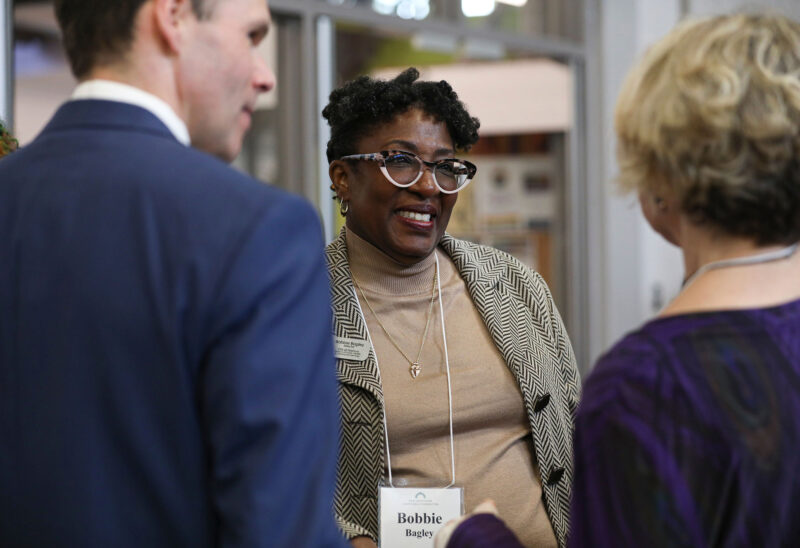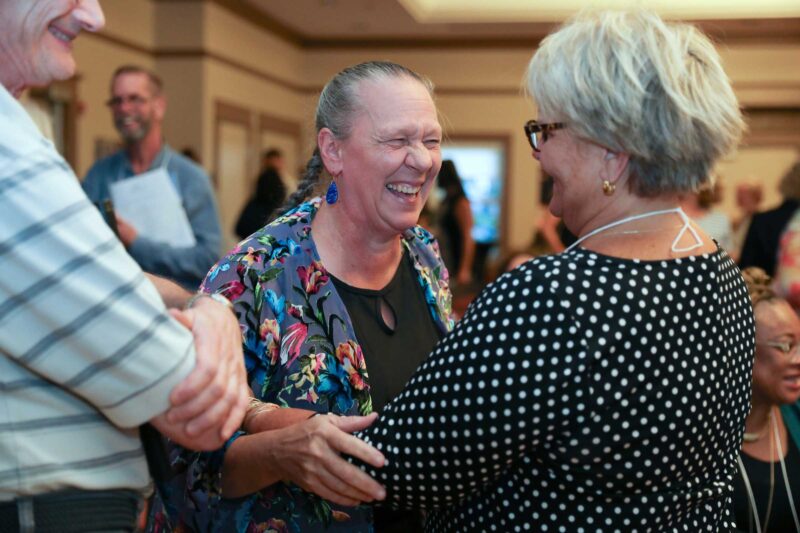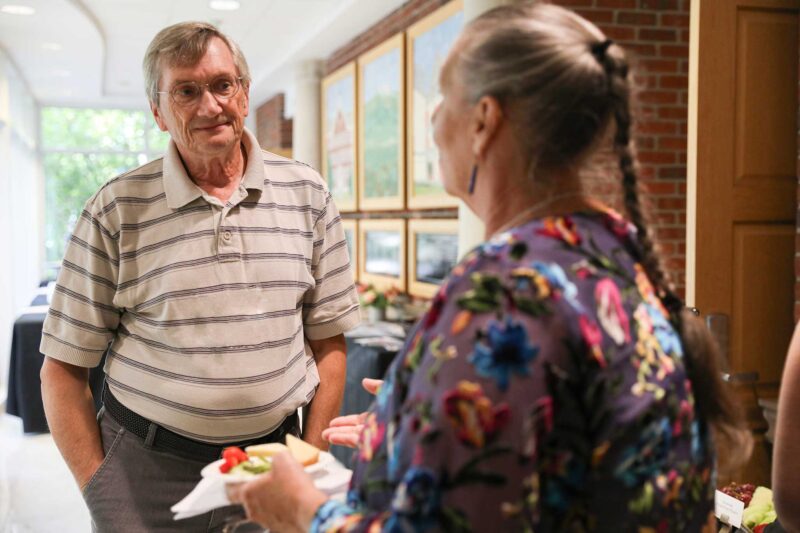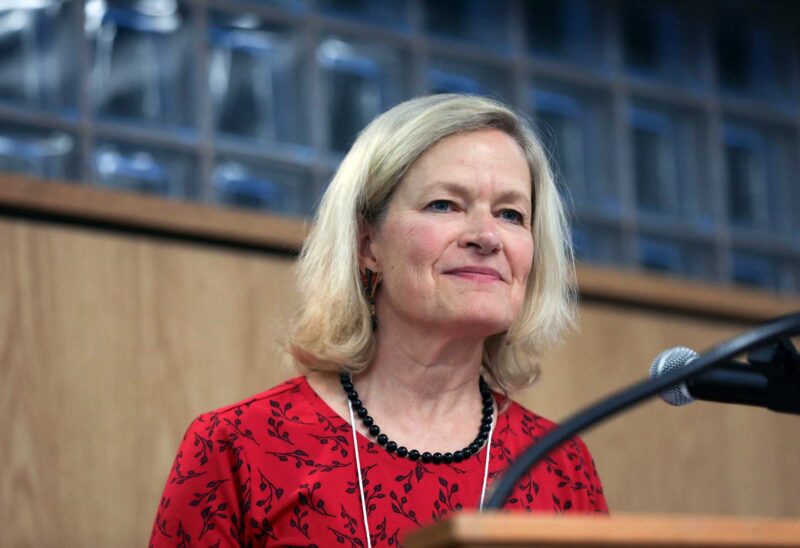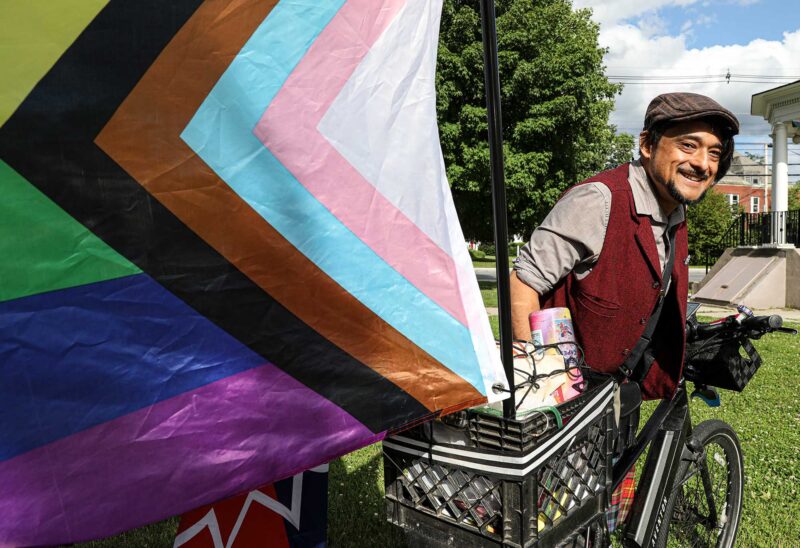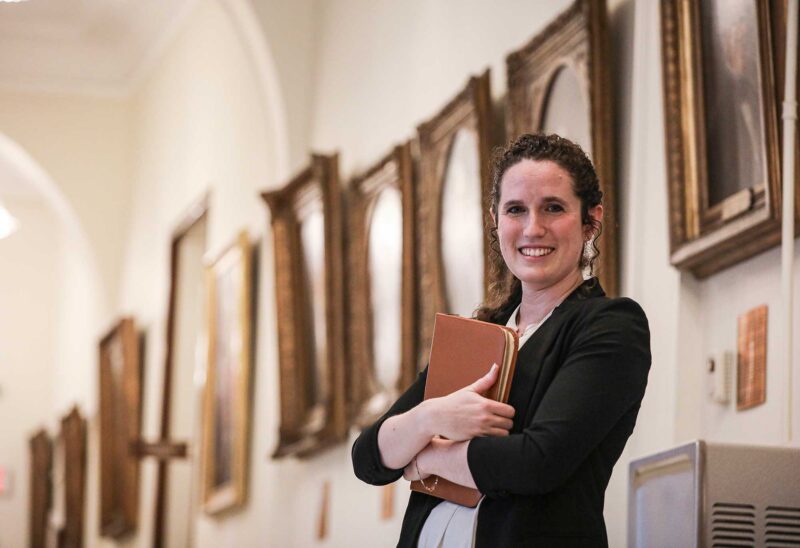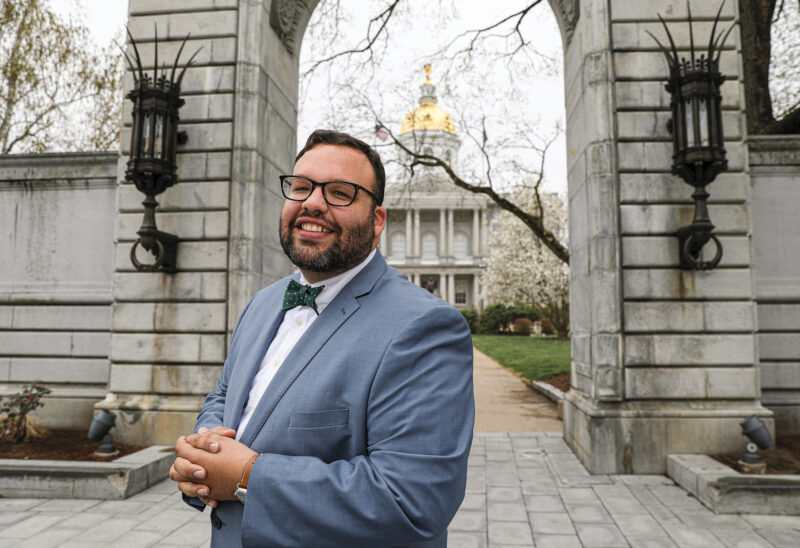Heading into the 2020-2021 school year, Stacey Kallelis was facing the unfortunate task of telling several of her students who were working toward criminal justice careers that there were no internships available for them.
“When you think about the nature of the work, it’s very challenging to give them real, meaningful experience,” said Kallelis, the Work-Based Learning Coordinator for Salem High School.
Then Kallelis heard about a grant provided by the New Hampshire Charitable Foundation in support of “hyperlocal” career pathways: programs that bring together a community partner, a student body, and a higher education institution to create a workforce pipeline in a community.
“I was like, ‘wait a second, why don’t I utilize this to solve my problem?’” Kallelis said.
With funding from the Charitable Foundation, Kallelis collaborated with the high school’s criminal justice teacher, the Salem Police Department, and Nashua Community College to create an Extended Learning Opportunity (ELO) that offered college credit, real-world learning, and academic rigor. In its second year, the program has more than doubled in size and gets rave reviews from students and the police department alike.
“It’s been a huge success,” Kallelis said.
Salem’s criminal justice pathway is just one of numerous such programs taking root around the state, with support from the Charitable Foundation.
“We have projects in virtually every career field you can think of,” said Michael Turmelle, the Charitable Foundation’s Director of Education and Career Initiatives.
Community partners ranging from manufacturers to healthcare providers have been eager to come to the table because of their workforce needs. Students, however, are the real focus. Introducing young people to career opportunities in their own backyards and addressing the obstacles that separate them from those opportunities is the main goal of the initiative.
“We’re approaching this from an equity perspective,” Turmelle said. “We want our funds to go toward helping students who have some barriers… We see the value of education to help lift people and give them more opportunity.”
A brush with the law in Salem
Salem High School’s criminal justice program has three components: an “early college” course taught by a Nashua Community College professor, a weekly hands-on learning experience at the Salem Police Department, and a final project where students incorporate everything they’ve learned.
Kallelis has made a point of promoting early college at the high school because it not only saves students time and money but also helps them envision themselves as college students and get used to the rigor and pace of college classes. “It’s their first true experience as college students,” she said. “It can be overwhelming at the beginning, but you see them all kind of grow and mature through the process.”
The sessions at the police department, though, are the real draw. Throughout the course, students get to sit in on dispatch shifts, learn how to lift fingerprints, try radar equipment, drive golf carts wearing alcohol impairment goggles, and ride in a BearCat with the SWAT team.
“It gives them insights into all the day-to-day workings of the police department,” said Salem Police Chief Joel Dolan.
Facing a sharp decline in job applicants in recent years, Dolan and his staff had been brainstorming recruitment strategies when Kallelis approached him about the criminal justice partnership. They created a training program similar to the citizen police academy they had already established.
When a BearCat shows up at school, kids tend to notice: In its second year, the program grew from seven students to 17. And most are going on to two- or four-year criminal justice programs.
“If we can let these high schoolers see what we do and how we do it and give them that knowledge, we hope that plants the seed,” Dolan said.
The program’s capstone event — a mock murder trial — was a big hit with students and officers alike, Kallelis said.
“The whole thing has been a real mood booster for everyone,” she said. “One of the police officers got up to speak and wanted everyone to know that this was the most amazing experience he’s had in his entire law enforcement career.”
Close to the bone in Concord
You can’t choose a career you don’t know exists, and many young people simply haven’t been exposed to some of the promising and accessible careers in their communities.
Take orthopaedic technology, a program offered by NHTI as both a certificate and associate’s degree. “Students who go through the program love it. They have multiple job offers before they graduate,” Laura Scott, former Director of Alumni and Development for NHTI, said in an interview last spring.
However, unless they’ve broken a bone, many young people haven’t heard of orthopaedic technology. That’s why NHTI partnered with the Concord Regional Technical Center at Concord High School, Concord Orthopaedics, and the Greater Concord Chamber of Commerce to create an orthopaedic technology pathway.
CRTC students who participated in the program received hands-on training and in-office and lab experience, as well as college credit through Running Start for their medical terminology course. The Charitable Foundation grant paid for the course and textbook. Some students also received gas cards and meals to ensure they could participate in the program. “We made sure there was no cost at all,” Scott said.
The Greater Concord Chamber of Commerce represented an ideal fourth prong of the hyperlocal pathways program: a business entity that can potentially replicate the program for other partners.
The Chamber helped organize a networking event, similar to its “business after hours” events, pulling together a panel of experts to talk about careers in the medical field they might not have considered.
“It was a really good thing for the students to hear about all the jobs that were available with a certificate or associate’s degree,” Scott said. “The parents loved it too. … We had this panel saying ‘we’ll hire you now with an associate’s degree, and you’ll make $45,000 a year.’ ”
A well-oiled machine in Kingston
Students at Sanborn Regional High School in Kingston can explore careers at many levels, from a dabble to a deep dive. But sometimes, providing the right level of exploration to match a young person’s interest can be a challenge.
That’s how the school’s advanced manufacturing program came about. Students who become interested in manufacturing through a school-sponsored tour of a local business didn’t really have an option for further exploration short of an internship, and none of the career and technical education (CTE) centers in the area offered an advanced manufacturing program.
“We were kind of missing that middle piece,” Brian Stack, former Principal of Sanborn Regional High School, said last spring.
Utilizing one of the Charitable Foundation grants, the school put together a course that includes tours of manufacturing facilities, job shadow opportunities, industry-specific training, and coursework in business skills such as resume writing and interviewing. Students in the program earn an OSHA certification and an optional English credit. They can choose either a work-based learning program at a local business or take classes at Great Bay Community College.
“A lot of times it’s students who maybe don’t think they have the aspirations to do college or a community college, and once they go, they say, ‘hey I could do this,’” said Kerrie Alley-Violette, Career Pathways Coordinator for the school and co-teacher of the advanced manufacturing class.
Along with psychological barriers, the program breaks down material barriers students face. The grant pays for the OSHA certification, tuition costs, and miscellaneous items like industry clothing and money for transportation and meals they miss at school when they’re in the field.
“We have a lot of students who just could not otherwise afford something like that,” Alley-Violette said.
The success of the program and others like it rests on strong relationships with community partners, as well as an adaptive mindset, Stack said.
“It takes educators who are willing to be flexible to even get something like this up and running and sustain it,” he said. “They have to take a leap of faith.”
In its second year, the program is already helping students find their way to career pathways in the community.
“One business owner has said, if these kids make it through the first year of the program successfully, he will guarantee them an interview, and if he hires them, he will pay for their second year,” Turmelle said.
Violette said she’s received a lot of positive feedback from students and parents. “They’re finding an interest, or they’re finding a niche, and they’re saying, ‘oh, I didn’t know these doors were open to me,’” she said.
Mapping the way in the White Mountains
Numerous other hyperlocal pathways are up and running or in the works all over the state — including one that will provide a roadmap of sorts for creating successful hyperlocal pathways: a bike tech program that will launch in the fall through a partnership between the University of New Hampshire and 20 area businesses in the North Country. Students in the program will earn five industry-recognized credentials and learn how to work on mountain bikes, including electrical bicycles, in preparation for careers in the hugely popular mountain biking industry in the North Country. As part of the program, a UNH researcher will conduct case studies and publish a paper about hyperlocal pathways.
The goal, said Turmelle, is to identify the elements that make the pathways successful so they can continue to proliferate in communities around the state.
**
Reaching Higher NH’s mission is to provide all New Hampshire children with the opportunity to prepare for college, for immediate careers, and for the challenges and opportunities of life in 21st century NH, by serving as a public education policy and community engagement resource for New Hampshire families, educators, and elected officials. Learn more here.

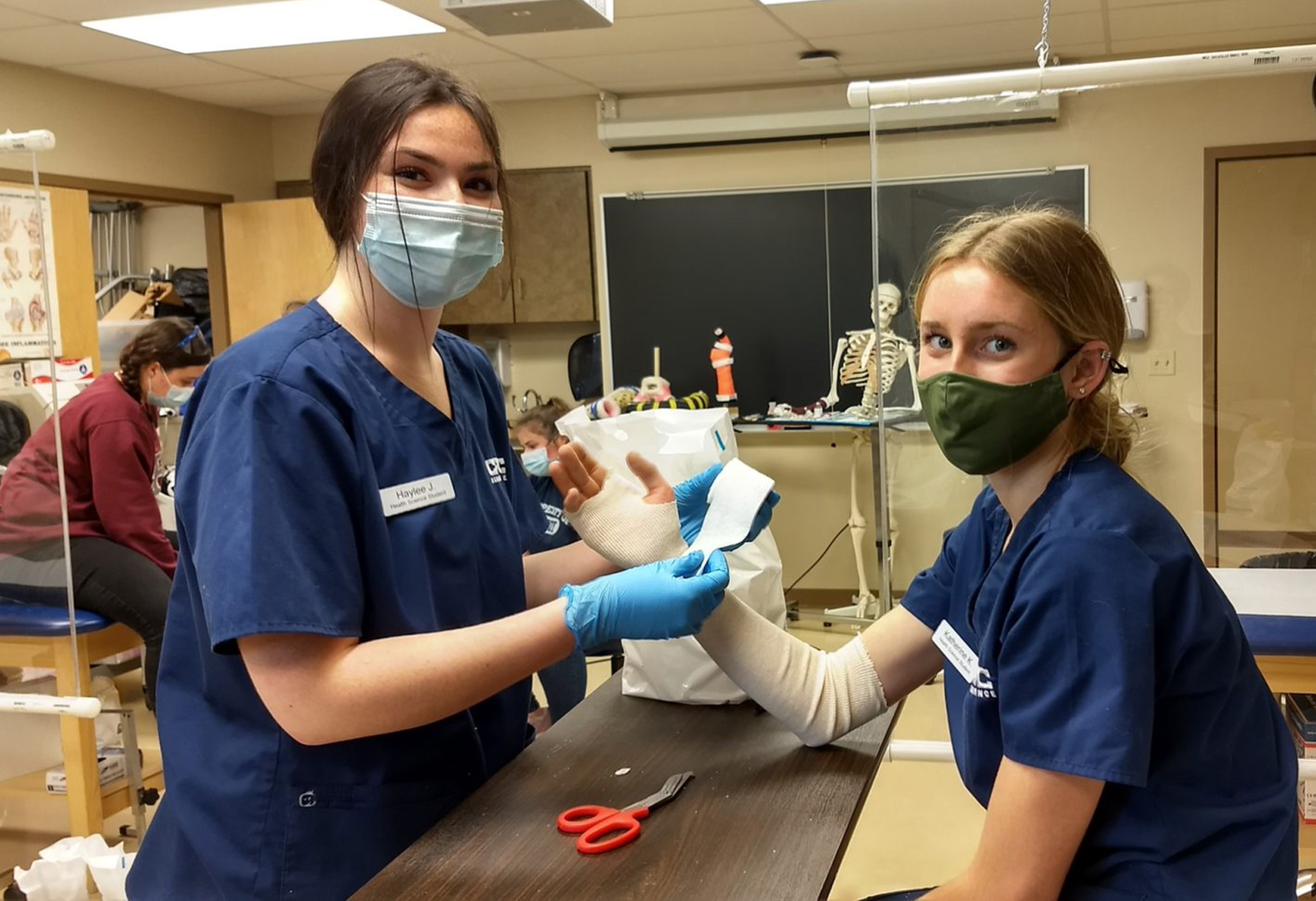






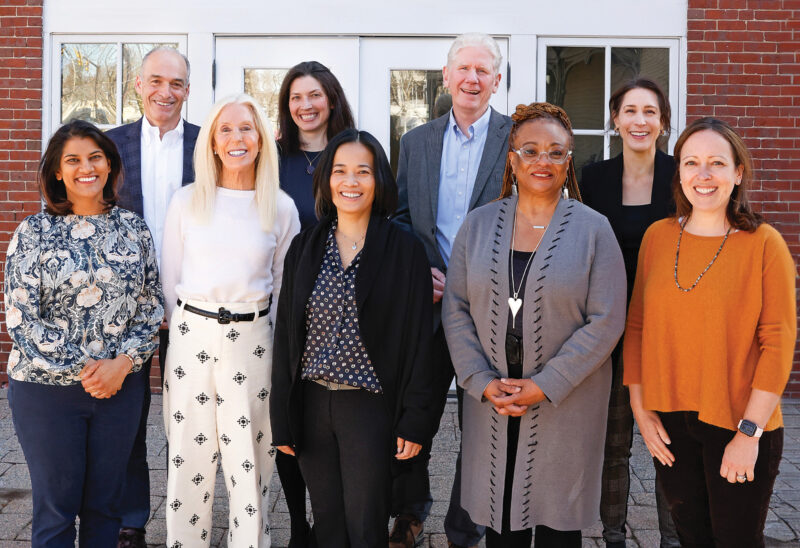
![Indrika Arnold, Senior Wealth Advisor, the Colony Group [Photo by Cheryl Senter]](https://www.nhcf.org/wp-content/uploads/2024/05/Indrika-Arnold-Hero-800x534.jpg)


